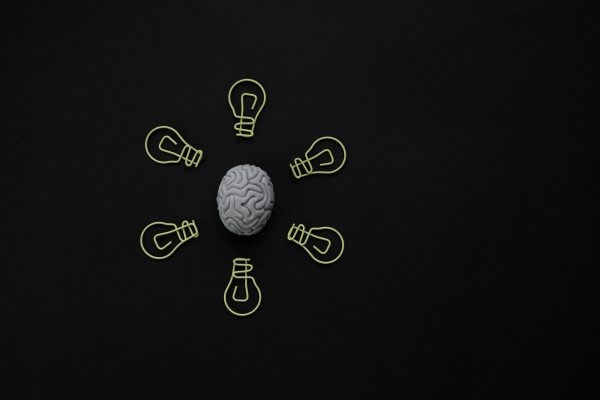7 Ways to Detox Your Brain

As you detox your body to lose weight and live a healthier lifestyle, your brain can also be detoxed. Brains have the highest metabolic activity of all the body’s organs, making them more susceptible to external toxins – such as toxic relationships, habits, and thinking patterns. As a result, it carries the highest toxic burden within your body.
Some of us carry a heavier load than we realize. If your brain seems overloaded with toxins, it’s high time for a brain detox. We must eliminate biological, psychological, and social toxins as quickly as possible rather than adding to our brain’s toxic load. With a cleansed brain, you’ll be able to think clearly, feel more stable emotionally, have better relationships, and live a more fulfilling life.
Here are seven ways to detox your brain.
-
Work on bad habits
Drugs like alcohol and marijuana and legal substances like nicotine are addictive and harm the brain. Substance abusers have the worst-looking brains on the brain SPECT scanning, a test that measures blood flow and brain activity.
Addiction has several negative outcomes. In addition to decreasing brain volume, blood flow, new brain cell production, and cognitive function, addiction also increases the likelihood of dementia. Some co-occurring conditions include anxiety, depression, bipolar disorder, ADD/ADHD, and traumatic brain injury (TBI).
A brain detox solution is to replace your toxic habits with habits that protect and enhance your brain. To focus on your mental health, seek the help of a professional and enroll in a rehab facility such as Delphi Health Group. This rehab facility offers individualized treatment plans to help you recover from addiction.
-
Change your eating habits
The standard American Diet (SAD) contains artificial chemicals and pro-inflammatory foods that accelerate brain aging and exacerbate mental illnesses, including depression, anxiety, ADD, and dementia. This type of food is a weapon of mass destruction, including:
- Heavily processed food
- pesticide sprayed food
- Food with a high glycemic index
- Food that is low in fiber
- Sugary and artificially colored foods
- Food that is packed with hormones
- Antibiotic-contaminated
- Food that is kept in plastic bags or jars
As a brain detox solution, clean, sweep your fridge (and your entire kitchen) and get rid of all of the foods that don’t serve you. This will reduce anxiety, depression, cognition, and memory issues. The absence of junk food in the house prevents impulsive, mindless eating. Instead of constantly fighting your impulses, it is easier to make one strong decision!
-
Analyze your social circle
Relationships with toxic individuals, limited support from family, or conflict at work trigger stress hormones and make us more susceptible to depression, anxiety disorders, and other illnesses. Moreover, spending time with people with bad habits will increase your likelihood of picking them up. On the contrary, having great relationships benefits our brains in many ways.
The brain detoxing solution for this issue is to identify the people in your life and decide whether they are accomplices (people who have a negative influence on your life) or are they friends, mentors, and coaches (who help you improve your mental health). Keeping your accomplices at a distance is a good idea.
-
Focus on your home and life
Our brains are exposed to many chemicals, fumes, and products on a daily basis. These include cleaning products at home, personal care products, and gasoline fumes. By breathing in toxins and rubbing skin products on our skin, we absorb them into our bodies, eventually damaging our brains. Exposure to these everyday toxins increases your chances of cognitive and mental health problems and puts your brain at risk.
Household cleaners and personal care products contain toxic chemicals. When possible, opt for chemical-free, scent-free alternatives.
-
Take a break from technology
Are you constantly browsing your social media feed, checking for new messages, or watching the latest Netflix series? As technology continues to take over our lives, we face issues such as anxiety, agitation, and lack of attention, self-esteem, moodiness, forgetfulness, hyperactivity, relationship problems, and more.
Try to break your digital obsession if you suffer from negative effects. It is possible to develop a more blissful relationship with your gadgets through intermittent fasting. This is a popular way to achieve and maintain a healthy mental balance.
Here are a few ways to detox your brain from technology:
- Don’t spend too much time using your gadgets and allocate time for them
- Take a break from the internet every week or at least a month
- Don’t use more than one screen or open more than one tab simultaneously.
- Don’t text or talk on the phone when you’re with family or friends.
- Create a tech-free space in your home where you can engage in mentally stimulating activities
- Try memorizing things before you rely on the internet
-
Pay attention to your nighttime rituals
As you sleep, your brain performs several important tasks that keep it running at its best. Sleep, for example, allows your brain to eliminate cellular debris and toxins built up throughout the day (basically removing the neural trash), consolidate learning and memory, and prepare for the next day. Brain processes that occur during sleep affect your immune system, appetite control, and neurotransmitter production. A brain that doesn’t get enough sleep or suffers from sleep disturbances cannot reap these benefits.
Here are some brain detox tips for helping your brain remove toxins:
- Get at least 7 hours of sleep every night.
- Sleep in a dark, quiet bedroom.
- Ideally, the ambient temperature should be between 60 and 67 degrees Fahrenheit.
- Get into a routine of going to bed and waking up at the same time every day.
- Eat a meal at least 2-3 hours before bedtime.
- There should be no blue screens at least an hour before bedtime.
- Get yourself tested for sleep apnea and/or wear your CPAP if you snore.
- Melatonin can help you fall asleep.
-
Your Thoughts
Your thoughts, how you talk to yourself, and your stream of consciousness can either help or harm your mental health.
Thoughts are not always true. They deceive and trick the brain. What keeps you back and keeps you down is what lies you tell yourself more often than not. There is no doubt that automatic negative thoughts are a leading cause of your brain’s inability to think, recall memories, and solve problems.
Automatic negative thoughts are the nastiest forms of negativity that cloud your brain and are the biggest thieves of your happiness. It is always a good idea to write down anything that makes you sad, angry, anxious, or negative. Afterward, you should ask yourself if that’s really the case. Your outlook can become more positive and hopeful as a result.
Conclusion
If your mind has been exposed to toxic substances, toxic thoughts, or toxic people, you are at risk of cognitive and mental health problems. You can understand your brain’s performance and what areas need to be optimized through SPECT scans.
It is impossible to anticipate a positive outcome from a troubled brain. You should pay attention to your emotional and cognitive well-being during these uncertain times since waiting until life returns to “normal” may worsen your symptoms.








